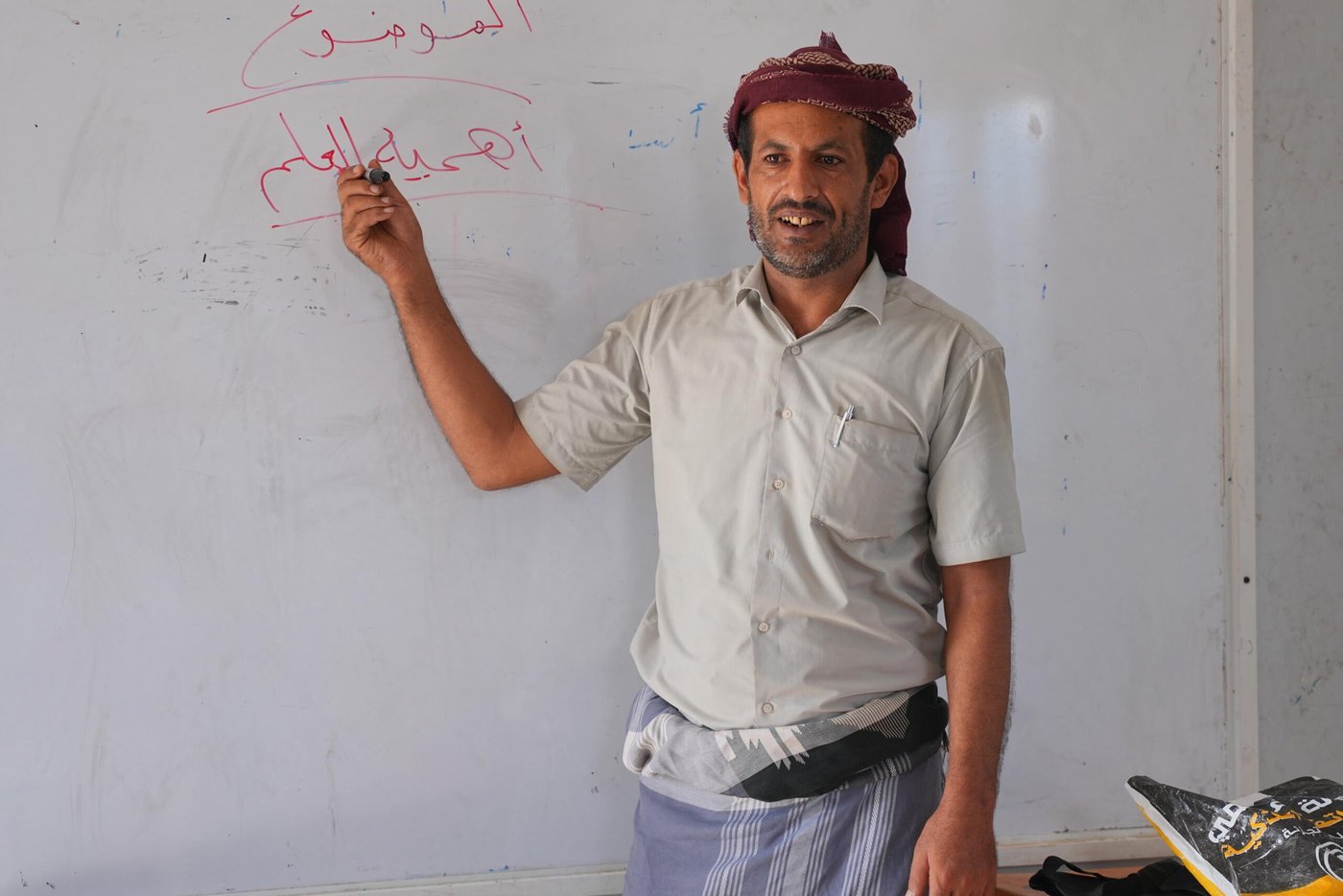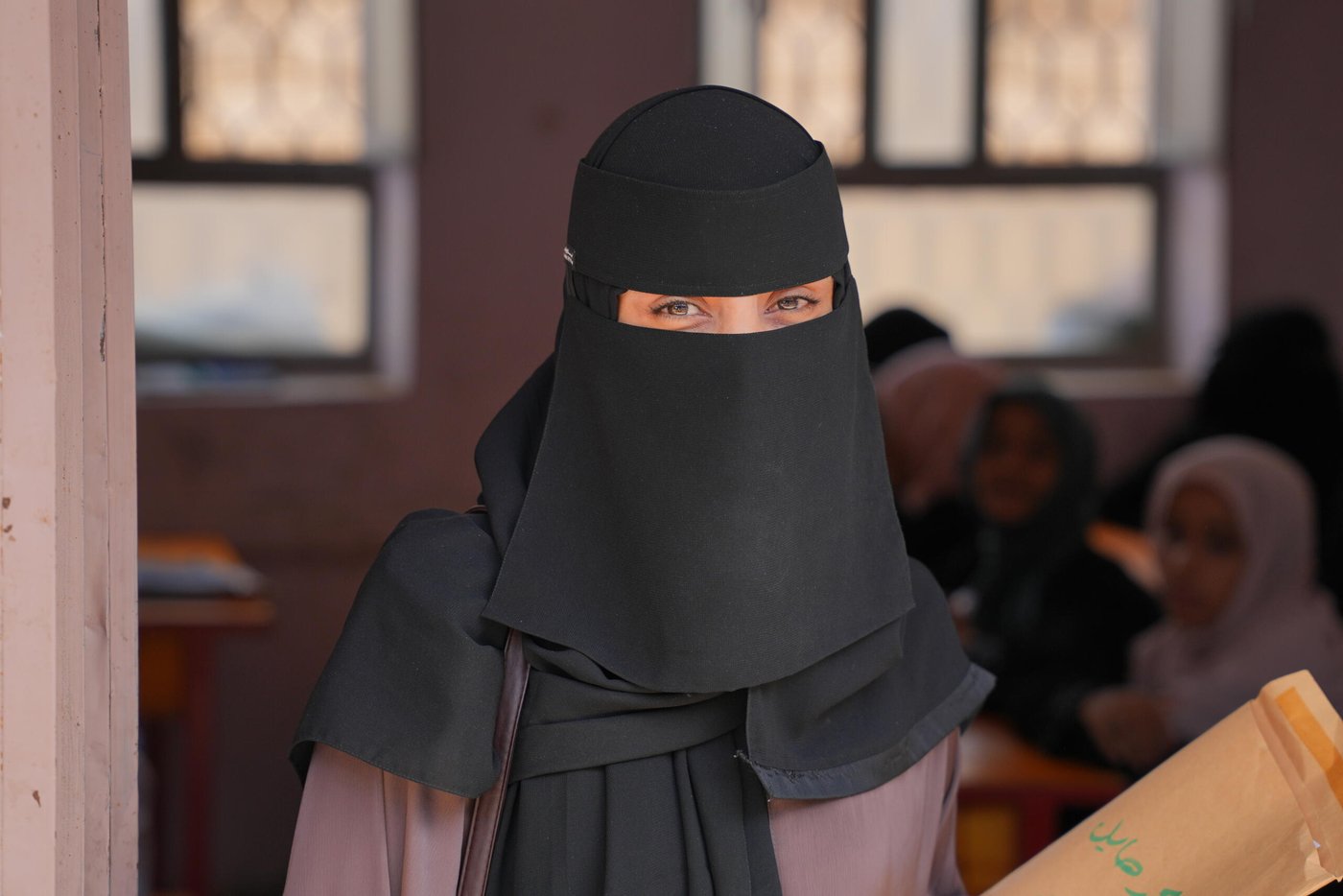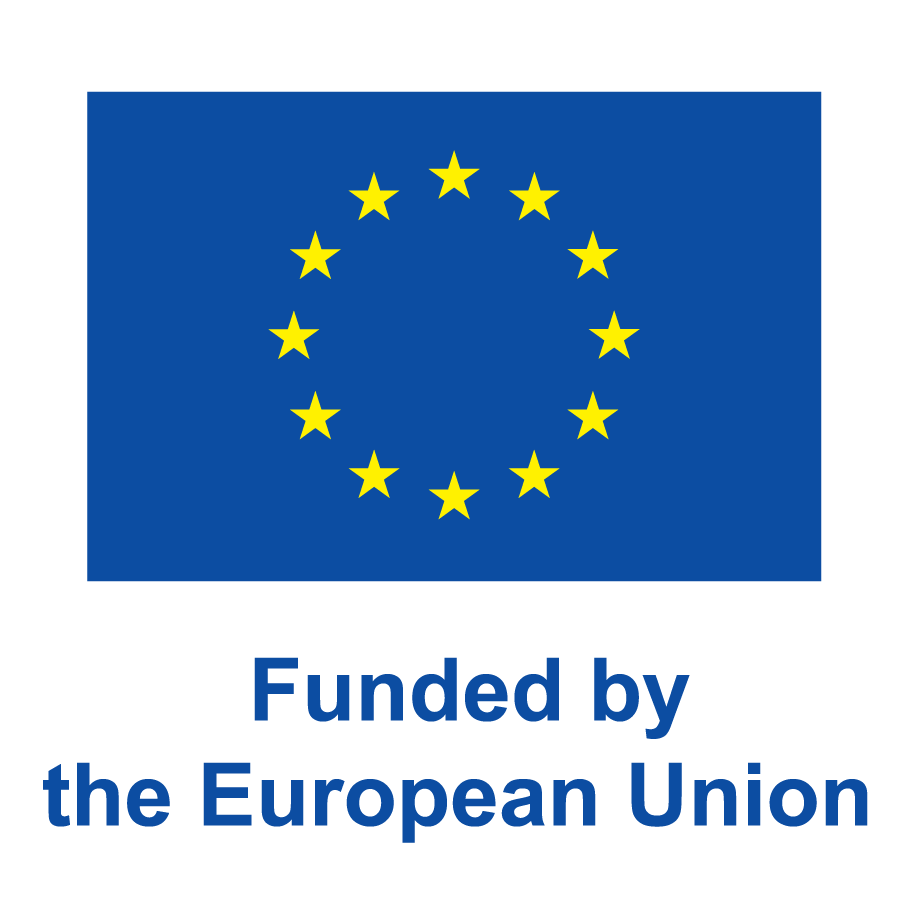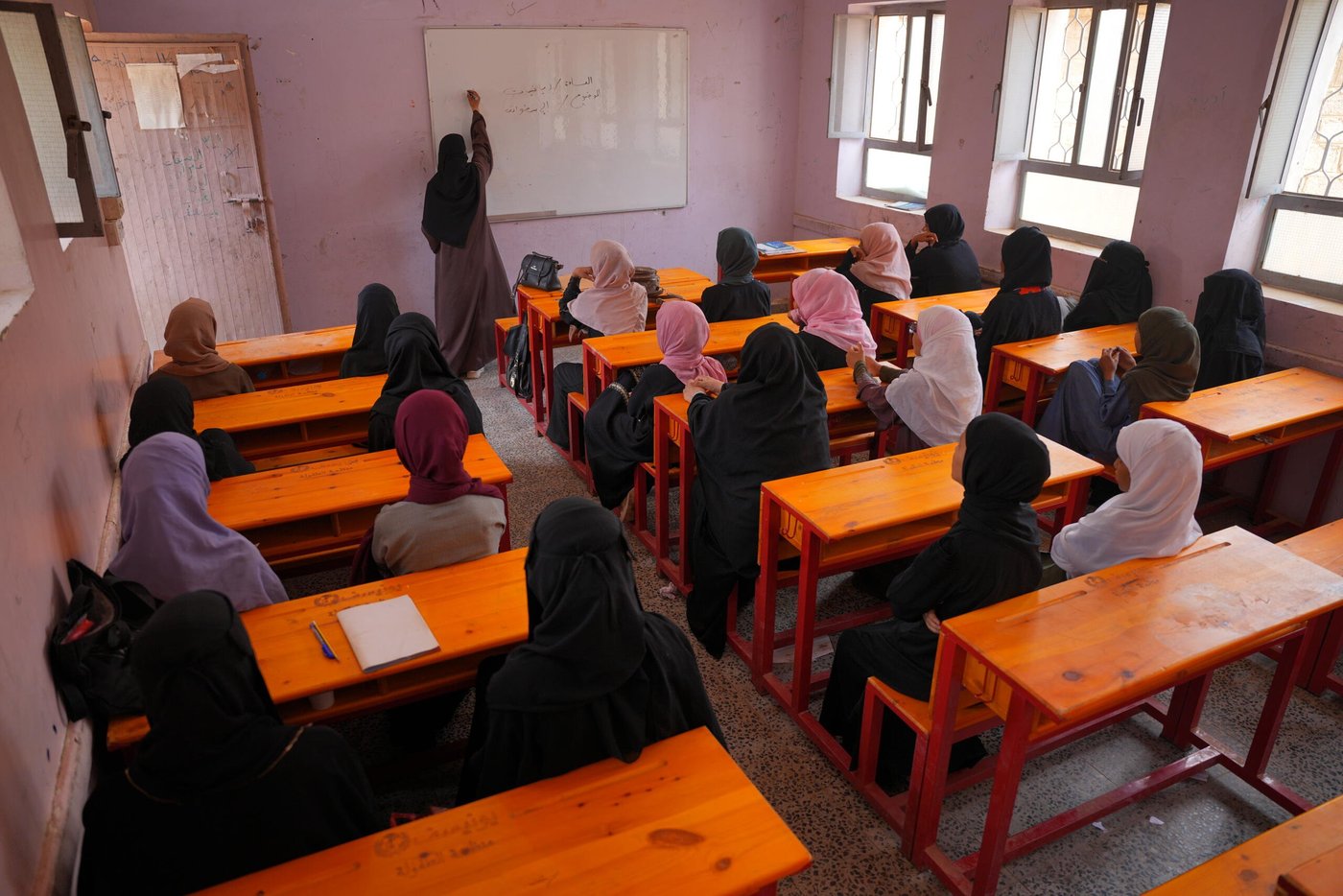The ongoing conflict and displacement in Yemen have placed significant pressure on the education system. In regions where schools lack qualified teachers and children have limited access to quality education, passion for the profession and a diploma or degree in a related field can be enough to become a teacher.
Gazem, 36, holds a diploma in administration. Driven by a desire to help, he began teaching at Abu Obaida School in Marib four years ago, despite lacking formal training or teaching experience.
“Being a teacher is a difficult job when you don’t have the required skills,” he says. “But we had to do it to help our children access education. Over the past four years, I have spent a lot of time preparing lessons and struggled to teach children effectively.”
Gazem and other teachers in the area had no access to training courses to improve their teaching skills, which made it difficult for them to deliver quality education.

Eman, a maths teacher at Al-Shaheed Mohammed Hayel School in Marib, holds a bachelor’s degree in accounting. She began teaching six years ago.
“I joined the teaching profession to help build an educated and informed generation that can support itself in the future,” she says.
Although Eman has been doing well, she admits she lacked training in lesson planning and in dealing with children affected by conflict.
To address these challenges, the Norwegian Refugee Council (NRC), with support from the European Union through its Humanitarian Aid Operations, provided specialised training to 500 teachers in Marib Governorate.
“The specialised training gave us the skills we needed and taught us effective methods and approaches to better educate children,” explains Gazem. “Now I’m more confident. I feel like a professional teacher and no longer struggle like before.”
Gazem teaches first-grade students, making him the first teacher they encounter in school. “I welcome the students to the school, so I needed the skills that can make them feel comfortable and enjoy school," he adds.

Eman agrees that the training was transformative. “One of the most important aspects was psychological support and teaching in times of crisis,” she says. “It was difficult to deal with students affected by conflict, but now we can manage that professionally. Our performance has improved and so has the students’ academic achievement.”
“In light of the limited technical support for teachers due to the ongoing conflict, building their capacities in educational and teaching practices is a key factor in ensuring the continuity and quality of education, particularly in providing psychological support for children and making sure they are protected,” Says Hossam Kasseb, NRC education specialist.
In addition to the training, NRC, with support from the European Union, rehabilitated schools in Marib, provided students with cash assistance to buy school supplies, equipped classrooms with teaching aids for better learning, supported remedial classes, and strengthened parent councils.
Last year, NRC, with support from the EU and other donors, helped 20,763 children access high-quality education. Now NRC, under this EU-funded project, is helping 40,000 children access high-quality education.

Sign up to our newsletter to read more stories from around the world.


